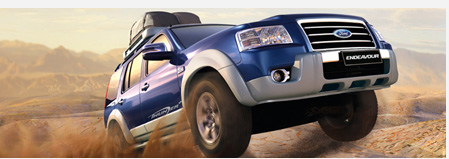History Ford Motor Company is an American multinational corporation and one of the largest automobile manufacturers in the world. Based in Dearborn, Michigan, a suburb of Metro Detroit, the automaker was founded by Henry Ford and incorporated in 1903. Ford now encompasses many global brands, including Lincoln and Mercury in the US, Jaguar, Aston Martin and Land Rover of Great Britain, and Volvo of Sweden. Ford also owns a one-third controlling interest of Mazda, and is listed as the world's third largest automaker based on vehicle sales in 2005. Ford has also been one of the world's ten largest corporations by revenue. In 1999, Ford ranked as one of the world's most profitable corporations. However, in recent years, it has not fared as well. Ford has not gained market share in North America since 1995. Ford introduced methods for large-scale manufacturing of cars, and large-scale management of an industrial workforce, especially elaborately engineered manufacturing sequences typified by the moving assembly lines. Henry Ford's combination of highly efficient factories, highly paid workers, and low prices revolutionized manufacturing and came to be known around the world as Fordism by 1914. Ford India Website Click here |
| Brands and Marques |
| Today, Ford Motor Company manufactures automobiles under several names including Lincoln and Mercury in the United States. In 1958, Ford introduced a new marque, the Edsel, but poor sales led to its discontinuation in 1960. Later, in 1985, the Merkur brand was introduced; it met a similar fate in 1989. Ford has major manufacturing operations in Canada, Mexico, the United Kingdom, Germany, Brazil, Argentina, Australia, China, and several other countries, including South Africa where, following divestment during apartheid, it once again has a wholly-owned subsidiary. Ford also has a cooperative agreement with Russian automaker GAZ. Since 1989, Ford has acquired Aston Martin, Jaguar, Daimler (division of Jaguar), Land Rover, and Rover from the United Kingdom and Volvo Cars from Sweden, as well as a controlling share (33.4%) of Mazda of Japan, with which it operates an American joint venture plant in Flat Rock, Michigan called Auto Alliance. It has spun off its parts division under the name Visteon. Its prestige brands, with the exception of Lincoln, are managed through its Premier Automotive Group. Ford's non-manufacturing operations include organizations such as automotive finance operation Ford Motor Credit Company. Ford also sponsors numerous events and sports facilities around the nation, most notably Ford Center in downtown Oklahoma City and Ford Field in downtown Detroit. It is also notable that both facilities share design aesthetics in addition to their common name and similar downtown location! |
| Global Markets |
| Initially, Ford models sold outside the U.S. were essentially versions of those sold on the home market, but later on, models specific to Europe were developed and sold. Attempts to globalize the model line have often failed, with Europe's Ford Mondeo selling poorly in the United States, while U.S. models such as the Ford Taurus have fared poorly in Japan and Australia, even when produced in right hand drive. The small European model Ka, a hit in its home market, did not catch on in Japan, as it was not available as an automatic. The Mondeo was dropped by Ford Australia, because the segment of the market in which it competes had been in steady decline, with buyers preferring the larger local model, the Falcon. One recent exception is the Focus the European model has sold strongly on both sides of the Atlantic. |
| Alternate Fuel Vehicles |
| Bill Ford was one of the first top industry executives to make regular use of an battery electric vehicle, a Ford Ranger EV, while the company contracted with the United States Postal Service to deliver electric postal vans based on the Ranger EV platform. The alternative fuel vehicles, such as some versions of the Crown Victoria especially in fleet and taxi service, operate on compressed natural gas - or CNG. Some CNG vehicles have dual fuel tanks - one for gasoline, the other for CNG - the same engine can operate on either fuel via a selector switch. Flexible fuel vehicles are designed to operate smoothly using a wide range of available fuel mixtures - from pure gasoline, to bioethanol-gasoline blends such as E85 (85% ethanol, 15% gasoline). Part of the challenge of successful marketing alternative and flexible fuel vehicles, is the general lack of establishment of sufficient infrastructure (fueling stations), which would be essential for these vehicles to be attractive to a wide range of consumers. Significant efforts to ramp up production and distribution of E85 fuels are underway and expanding. |
Tuesday, July 13, 2010
Ford Motors
Labels:
Automobiles in India
Subscribe to:
Post Comments (Atom)


No comments:
Post a Comment